The title of this article has been chosen because it indicates in a concise way its main subject and aims, but a more exact and complete title would have been Psychoanalysis and Psychosynthesis of the Jewish People. (1)
Indeed psychosynthesis presupposes or rather includes as its first and necessary stage, psychoanalysis. There is in this respect a close analogy with chemical processes – both with those brought about in scientific laboratories and those even more wonderful which are constantly going on in the human body. For instance, the complicated molecules of the proteins contained in food are by the biochemical analytical processes of digestion subdivided into simpler molecules – those of peptones. Then the latter are again combined through a process of synthesis, into new and greater molecules, constituting the specific proteins of our own organism.
The same occurs in the human psyche, in which processes of dissolution and reconstruction are going on all the time, involving both those psychological elements (and their combinations) which are innate and those which have been and are being absorbed all the time from the environment.
Sometimes these processes of psychological assimilation (one might say of ingestion and of digestion) are accomplished in an easy and spontaneous way, but often – particularly at present – they meet many difficulties. Carrying the analogy further, we may say that psychological indigestions and toxic conditions are frequently produced, that psychopathological abscesses and tumours are developed in the subconscious of many individuals.
The need for studying and curing these troubles has led to the creation and the use of new methods of investigation and of treatment, and to various theories and interpretations, which are included in what is called psychoanalysis.
The lot of psychoanalysis has been peculiar. A thing has happened which we most deplore because it has had many bad consequences, but which, just on the basis of a psychoanalytic knowledge of human nature, should not surprise us! The more questionable, excessive and dangerous aspects of psychoanalysis have been those most emphasized and widespread, while its better and more constructive sides have been relatively neglected. The pan-sexual theory (or the alleged sexual origin of most manifestations of human life) and a system of interpretations often arbitrary and far-fetched have had a great vogue among the public, arousing an unwholesome curiosity and often giving a pseudo-justification to an uncontrolled letting loose of the instinctive nature. At the same time the higher aspects, the finer flowerings of human nature, such as religion and art, have been subjected to a destructive analysis which missed their true and deeper essence.
The consequence of these excesses and of these deviations has been that a number of psychologists and doctors have been led into a wholesale denunciation and condemnation of psychoanalysis, thus ignoring or rejecting the important elements of truth which it contains and the useful psychotherapeutic and educational techniques which it has developed.
We may say that its most fruitful contribution has been the demonstration that there can be no real health, no inner harmony and freedom, no unimpaired efficiency, without first sincerely, courageously and humbly acknowledging all the lower sides of our nature, all the instincts, impulses, passions, the glamour and the illusions, plus their manifold combinations and deviations which dwell and seethe in our subconscious and which delude, limit and enslave us.
Psychoanalysis, in its best aspects, effectively helps us to overcome the resistances and repressions produced by our ignorance, our fear, our pride, and our hypocrisy; these prevent us from seeing clearly the dark side of ourselves. Only their recognition enables us to deal in a satisfactory way with them and this prepares a sound and stable foundation for all our subsequent work of the psychological building-up or our personality.
As Freud has stated, psychoanalysis can help us pass from the “pleasure-pain principle” from the unceasing oscillation between these two pose, while we vainly attempt to cling to the first and to avoid the second, to the “reality-principle”, that is, to the recognition and the conscious acceptance of reality – with its laws and right claims.
Thus a well understood and applied psychoanalysis my help us pass from the world of passions, of emotions, of vain imaginations and illusions to the realm of healthy reason, to an objective and scientific vision of ourselves and of others. But sometimes this help, even when given by the best kind of psychoanalysis, might prove inadequate for the solution of man’s psychological and spiritual problems.
It has been observed again and again that the fact of bringing to the light of consciousness the diverse tendencies which are at war in our subconscious, may eliminate some morbid symptoms but it is not sufficient to solve the conflicts. Sometimes it may even complicate the condition, when the patient is unable to stand too sudden or premature a revelation. Also a too insistent and one-sided delving in the lower aspects on one’s nature can be definitely harmful.
Therefore the practice of psychoanalysis requires much caution and should be kept within definite bounds, but above all it should be integrated by an active psychosynthetic action. Through this, one can help patients, or the young who are educated by such new methods, aptly to utilise, transmute and sublimate their exuberant vital and psychological forces.
There are definite psychological laws regulating the uses and transformations of emotional and mental forces which bear a close analogy with the laws of hydro-dynamics, and on such laws are bases many methods by means of which those forces can be directed into the desired channels and applied to constructive purposes. These methods are being increasingly developed and perfected so as to constitute a new branch of applied psychology, which may be called psychodynamics.
Thus we can foster and deliberately direct the formation and the development of a complete, well integrated, and organised human personality. This is “psychosynthesis” in a strict sense of the word, the result of the use of psychosynthetic methods.
But there is another and most important fact which has been discovered, or rather, scientifically ascertained and recognised in the practice of psychotherapy, chiefly by Jung. It is the existence in man of qualities, energies, urges and needs, which are higher in kind and level than those present in the consciousness of normal, average men and women.
These tendencies and energies, which can be named superconscious, have with the conscious personality relationships and interactions, all curiously analogous – at a higher octave – to those of the instinctive subconscious urges. It has been ascertained also that those higher energies are often repelled and rejected from the “field of consciousness” for similar motives: lack of understanding, fear, preconceived ideas, depreciation, unwillingness to be disturbed or to fulfill new inner duties and to renounce selfish attachments and satisfactions. But also in these cases repressions and denials produce reactions, conflict and many kinds of nervous and psychological troubles.
As Jung has definitely stated, “normal man” is the ideal goal for all those… who are still below the normal level of adjustment. But for those men who have aptitudes higher than the average, the ideal or the moral obligation to be nothing else than normal men constitutes a Procrustean bed, a deadly and intolerable boredom, a hell without hope. There are therefore as many neurotics who get ill because they are only normal as those who get ill because the are not able to become normal. (1)
Consequently some of the more advanced psychologists have recognised the existence, and have started the scientific study, of the super-conscious – that is of that psycho-spiritual realm where are organised and developed and whence penetrate into man’s consciousness all the higher inspirations, philosophical and scientific institutions, spiritual illuminations, telepathic impressions and premonitions, exceptional powers on the body having healing effects, and impulses to heroic self-sacrificing deeds.
Indeed, it is high time that science should fully recognise the existence and the value of those inner realities; but also that those who have such experiences should welcome and unbiased, respectful and understanding investigation. Institutions, based on revelations originating on those transcendent levels, should not shun with diffidence the light which can be thrown upon them by a grater psychological knowledge. That which is true and real is like an adamant which cannot be marred by any metal tool: it is as pure gold which withstands the acid test of any analysis.
The time has come when religion and science should end their long and un-natural conflict, due to reciprocal misunderstanding and to the unwarranted clams of both. The time has come in which they should enlighten and integrate each other in a higher and broader synthesis.
Thus the irruption (often sudden and violent) of these higher energies will no more produce conflicts, exaltation, deviations, fanatical reactions, mistaken interpretations and valuations, strange mixtures of truth and illusion (as it happens in many cases when they descent into the middle and lower psychological levels).
Instead we will learn more and more to sustain the impact of those descending currents of energies, to direct and assimilate them in a proper way, aptly to lower, so to say, their potential, adapting it to the power of resistence of our mind and of our nervous system. This we will be able to reap the precious fruits of their regenerative action upon ourselves and upon those on whom they radiate. In other words, it is possible, and it should be our aim, to reach an harmonious integration and cooperation between the normal and the higher spiritual energies – that is to achieve SPIRITUAL PSYCHOSYNTHESIS.
Such a conception brings out another basic point, namely that psychosynthesis is not a task which can be completed, which leads to something final and static, such as the construction of a building. Psychosynthesis is a vital and dynamic process, leading to ever new inner conquests, to ever broader integration. All this is true for each of us as individuals, but it is just as true, and even more so, concerning the relationships which exist, or which can and should be established, among human beings. Indeed an isolated individual is a non-existing abstraction. In reality each individual is interwoven into a complicated network of vital, psychological and spiritual relations, mutual exchanges and interacting with many other individual; each is included in, and a constituent par of, various human groups and of groups of groups, in the same way in which a cell is a tiny part of a living organism. Therefore individual psychosynthesis is the first step towards inter-individual psychosynthesis.
Indeed, as an organ (for instance the liver) and a system of organs (for instance the digestive apparatus) constitute greater and more significant functional units than a simple hepatic cell, so the various human groups constitute definite psychological units or entities which fulfill specific functions and have consequently each their own peculiar life, activity and reality, or being.
The first pair of such human groupings, starting from the individual, is the pair of man and woman. It is the smallest and the simplest from the quantitative standpoint that is considering the number of its component element – but qualitatively it is one of the most complex, owing to the multiplicity and closeness, not only of the most mutual interactions, but also of the intimate physio-psycho-spiritual interpenetrations, which occur in the pair formed by a man and a woman.
This explains why it is so difficult that a spontaneous and almost automatic psychosynthesis or harmonious relation and cooperation may happen, as people generally expect, demonstrating a naïve and fatal ignorance of the complexities of human nature. That difficulty is abundantly evidenced by the almost general conflicts, the frequent dramas which jeopardize and not seldom beak the unity of human pairs. Adequate psychological knowledge and understanding and a conscious use of the methods of psychosynthesis would effectively help to eliminate an incalculable amount of suffering and complications.
The second psychological group or entity is the family. In the past, its members were closely knotted together, but is also often exerted a limiting and coercive influence on them. At present the family group is passing through a serious crisis, chiefly due to the accentuated diversities, and consequent acute conflicts, between the older generation and the younger one.
The study and the elimination of theses conflicts and the establishing of harmonious and constructive relations among the members of the family group is an important part of psychosynthetic education. May I emphasise that this includes the education of the parents, no less than – and even before – the education of the sons and daughters!
There are then wider groupings of various natures which have a greater of lesser coherency or degree of unification. There are, for instance, the different social communities, formed of people belonging to the same class or caste, or to the same trade or profession, or to the same organisation. Clear instances are offered by the typical mentality of the aristocratic class in the past; the “esprit de corps” of the military caste; the psychological community in a sporting or working team, or between men who, though physically far apart from each other, are accomplishing one same specific work, such as the astronomers of the world. But we will not dwell on such groups and will consider with a closer attention the king of groups which more directly concern our present theme and which are at present raising the most acute problems; those constituted by a people or a nation.
In order to adequately understand the nature of the groups we will make use of the close analogy which exists and has been often pointed out, between a nation and a human being. This fact has been often more or less clearly recognised; we frequently hear or read statements about the “soul” of a people, about its “psychology”, its “mentality”, its faults or qualities, its development and education. Such expressions correspond to a definite psychospiritual reality. (1)
The study of a nation as a living entity is very illuminating and from it we can draw many practical deductions and rules for action. The first fact revealed by this investigation – a fact which should not shock us, but which on the contrary explains and justifies man things and may be the source of a reasonable optimism – is that the “personality” of the nations is still at a stage corresponding to the troublesome pre-pubertal age, or at the utmost to adolescence or to early youth. It is the stage at which the boy or girl is reaching an initial degree of personal self-consciousness; and its early demonstration is generally uncontrolled and exuberant, in the form of a separative and aggressive self-assertion.
To this view may be opposed the fact that several peoples have a glorious past and have demonstrated high cultural achievement. To this objection we may answer that here we are not dealing with peoples in general but with nations as they exist at present and whose formation is comparatively recent. Moreover, one must take into consideration the fact that a people can produce great works of literature and art through a few superior individuals without having yet developed an adult national “personality” just as some artists may create valuable works in their early youth and yet remain through their whole life like children, without developing a real “personality”. This conception has been upheld, among others, by the genial Polish thinker W. Lutoslawasky, who read a paper at the “International Congress of Philosophy” of Bologne, in 1911, on Nations as Metaphysical Entities.
The evolution of peoples does not proceed along a straight line but in a “cyclic” way, as has been pointed out, among others, by the historian and philosopher, G.B. Vico, although in a more varied and irregular manner than that stated in his theory of “historical recurrences”. Even in individuals the psychological and spiritual age does not always parallel that of the body; we can notice in them alternating periods of activity and of inaction, of a speeding up and of a slowing down, of maturity or senility and of rejuvenation a typical example of this is offered by Wolfgang Goethe whose life had a definite cyclical development with recurrent periods of an amazing rejuvenation. During the last of these, at the age of seventy-four, he fell in love with a girl, Ulrica von Levelew, nineteen years old, and wrote for her one of his most inspired lyrical poems expressing feelings of an almost adolescent character.
Moreover, at present the particular cycles of each nation are overpowered by a larger cycle, involving the entire planet. This cycle marks the end of an era and the beginning of a new one. It thus involves a psychological rejuvenation of humanity and also the outburst of elementary primitive barbaric forces.
A second important fact (related with the one just considered) is that the psychological life of a nation corresponds to a great extent to that which is subconscious in individuals. Modern investigation of subconscious psychological activities has ascertained that these are chiefly instinctive, emotional, and imaginative; they are easily influenced by suggestion; and are often dominated by the collective unconscious directed by ancestral “images” or archetypes, as Jung calls them. Now, if we observe in a sincere and unbiased way the psychological life of all peoples we must recognise that the same characteristics are prevalent in it.
The conscious part of a man’s personality is represented in a people by a minority constituted of its thinkers (philosophers, historians, sociologists and other scientists) who endeavour to develop the self-consciousness of the nation, to interpret its past, to assess its present conditions, to point the future.
But such a minority generally is as yet more at the stage of research and discussion that at that of sure conclusions and definite action. Those who belong to it are often at variance with each other and their influence on the life of their nation is limited or unstable.
The Soul, the true spiritual Centre, is, both in nations and in individuals, superconscious. It does exist, but in a realm, or at a level that is ordinarily above the reach of the personal consciousness. Its reality is revealed by its manifestations, which generally occur only in exceptional occasions, but which are so vivid, potent and of such a different “quality”, that they bear a sure proof of their higher origin. In individuals this is outstandingly demonstrated by geniuses, mystics, holy men and heroes, in whom we cannot but recognise the manifestation of the “something other” that ordinary human characteristics. It happens also, at times, that those great individuals become inspired not only from their own Souls, but also from the Soul of their Nation which uses them as its instrument and representative in order to reveal itself and to achieve in group purposes. Examples of such inspiration and of such “overshadowing” have been Moses, Dante, Joan of Arc, Lincoln and many others.
The psychological examination and evaluation of a people is a difficult and complex undertaking and this might partially explain the fact that the researches which have been made to date on the psychology of the various peoples are not, as a whole, very satisfactory and that those made in a truly scientific, objective and unbiased way are rare.
Indeed, irrational impulses, glamour and pride are so influential as to blur the vision and to distort the assessment even of the material resources of a nation (an instance of this is offered by the gross mistakes in gauging their resources and those of the other nations made by Italian rulers when they forced their unwilling people to participate in the last war). How much more then the same deluding influences can act in the recognition of psychological factors, which are more fluid, complicated and difficult to interpret.
Therefore, the psychological study of the various peoples should be made only after a special preparation and with due caution; that is, after the investigators have gone through an earnest and sincere self-analysis, in order to eliminate as much as possible their own subconscious complexes, their emotional reactions, the bias and the illusions which tent to colour and distort their judgment and their conclusions. Owing to the difficulty of being objective and impartial in this matter it would be advisable that the study should be made by groups of investigators and that each group should include people different from the one under examination. Often those who are “outside”- and who look therefore from a certain “psychological distance”- may discern more clearly and judge more rightly that those who are “within”. From this standpoint, a severe critic and even an enemy may prove more useful that a blinder admirer. The old Indian sages have gone so far in this respect as to assert: “An enemy is as useful as a Buddha!”
There is another kind of vast human grouping in which has a great importance to religious groups, or more exactly communities of believers or of individual having a common faith. In this case we find a fundamental difference with all the other kinds of collective psychological entities, between the group or community and a transcendental Principle or Being, generally call God. Here one must recognise and duly appreciate those spiritual elements and relationships which belong to the superconscious realm.
The psychosynthesis of such religious groups raises its own special problems – for instance, the respective intensity and closeness of the “vertical” relation between the faithful and God, and of the “horizontal” or social links; between inner life and external form; between freedom and law; between originality and conformity; between evolution and tradition. Here the psychosynthetic problem and task consists in achieving the difficult harmonious integration between those opposite tendencies, all of which have their useful, even necessary function, and which should therefore be recognised and included in the group life.
Yet in spite of all contrasts, of all oppositions and of all negative appearances, the principle of synthesis, of solidarity, of brotherhood, is rapidly gaining recognition. An increasing number of men and women are animated by the will to implement and are actively working in all fields and within all different groups, outwardly unorganised but inwardly closely connected by a common dedication to the same purpose, as a world group of spiritual servers of humanity.
If they succeed in their noble efforts, if mankind will heed their appeal, a new Era will indeed dawn, and we may see the beginning of the great event prophesied in the past, hoped for at all times and now ardently invoked – the coming of the Kingdom of God on Earth.
After this general survey – which was deemed necessary in order to include our special subject in the larger problem of humanity- we may consider what is the real condition, what are the more specific problems, tasks and functions of that peculiar and tormented human group called the Jewish people. These problems, tasks and functions are threefold:
- Those concerning all individuals who belong to the Jewish people.
- Those concerning this people as a whole and its internal psychosynthesis.
- Those regarding the right relations between the Jewish people and other peoples. This is necessary, not only for the safety of the Jews, but for the achievement of the psychosynthesis of mankind.
As has been previously mentioned, we must star with a psychoanalytic research. This does not consist in a mere descriptive survey of the peculiar characteristics, or the faults and the qualities displayed by individual Jews, by Jewish groups (localised in space and time), and by that people as a whole. Indeed, such descriptions are not lacking. Even if we do not take into consideration the sayings of the enemies and of the critics, may Jewish writes have bought into evidence – either with a rude sincerity of with lively wit, or with a wrathful condemnation veiling a deep sorrow – the traditional faults, or certain peculiar traits of their people. But statements or indictments of this kind may only give a static and superficial picture – or, worse, a confused, and contradictory one.
If however the picture is drawn in an impartial way, it needs must show, side by side, faults and qualities which are opposite to each other and apparently contradictory. This is due to the fact – realisation of which is essential to psychological understanding – that “faults” and “qualities” are not fixed and unchangeable “entities”, or characters; they are the expression of moral judgments more that psychological data. In other words, they are more a question of measure, equilibrium and level that of intrinsic and specific properties. One might say, paradoxically, that we all have – or tend to have – the faults of our qualities and the qualities of our faults. For instance – considering some of the characteristics that have been attributed to the Jews – fear may be considered as an excess of the healthy instinct of self-preservation; diffidence as an exaggerated prudence; fanaticism as an idealistic fervour carried to the extreme. Inversely the sense of dignity and a consciousness of one’s worth may degenerate easily into pride and unwarranted sense of superiority; humility into servility; deep family affection into separativity and limitation of life interest within a narrow circle.
Instead, a proper psychoanalytic research should be “genetic”, should interpret and explain the facts; its aim should be to disclose their deep and sometimes remote causes, to discriminate between psychological traits which constitute genuine and natural characteristics of the Jewish people and those which are due to reactions, to compensations such as the influence and the pressure of environments, to deformations or to evasions, produced by special conditions such as the influence and the pressure of environment, particular historical events, anti-Semitism, etc.
I cannot undertake at present such a task; it is a difficult one which – as previously said – should be undertake preferably by a group of earnest and competent men. I will only call attention to a few essential points, and in order better to substantiate them I will quote extensively the statements of a noble son of Israel who is at the same time a learned scholar, a keen thinker, deeply religious, and a fervent apostle: Martin Buber (at present professor at the University of Jerusalem).
The most important and fruitful result of psychoanalytical research has been the demonstration that the apparent “unity” of the personality of “normal” men and women masks a plurality of heterogeneous and often conflicting psychological traits and forces which, in many cases, form a series of opposite poles. But, as Buber rightly observes, this fact reaches a special intensity and creates most acute problems in the Jewish people. He describes this condition in the following vivid, dramatic way:
“…we must understand the problem of Judaism in all its depth, we must reach the bottom where from contradiction, the eternal birth. Because such is the nature and the lot of Judaism that its most sublime aspect is connected with its lowest manifestation; its purest seed with the most shameful. Judaism is not simple and coherent, but full of contrasts. It is a polar phenomenon. Jacob Wassermann has written: “This is certain – comedian and true man; capable of beauty, yet ugly, sensual and ascetic, charlatan and gambler; fanatic and slave – all this is the Jew”.
With these words he has expressed what I feel to be the fundamental problem of Judaism, the enigmatic terrible and creative contradiction of its existence: its dualism. We may study this people, particularly where is lives in closed communities; we may trace out its life and its trials as expressed in its history; we may examine its literature in which its essence has found form – everywhere we find obstinate contradictions, stressed to such an extreme point as does not occur in any other human field – the most courageous love of truth near a lying nature which it demonstrates in the basic aspects of life; the will to extreme sacrifice near the most voracious egoism. No other people has produced such vile gamblers and traitors and such sublime prophets and redeemers.
And we find this not in different epochs, so that the summit would represent original Judaism and the abyss would be its degeneration (although one should not ignore the historical factor), but at all times these contradictory traits are simultaneous; often in the same man ‘yes’ fights with ‘no’ and he passes from one pole to the other through strange crises and decisions. I have said: it occurs often in the same man; but I should say that in some way this contrast is found in all Jews. Nobody can understand as well as does the Jew what it means to be tempted by oneself and nobody; has such a number of inhibitions as the Jew.
The history of a people’s life is fundamentally nothing other that the history of on of its member’s life projected and magnified, and what is taught by the history of Judaism can be completed and confirmed by each Jew through his own self-analysis provided his is courageous, honest and able enough… and we should be: courageous, honest and able, because we must not shirk the deep truth of our being; we cannot attain salvation unless we meet and face that reality.” (Seven Talks on Judaism).
What are the consequences of this duality? What attitude should we take towards it? What are the tasks that it imposes upon? The results of polar psychological conflicts can be very diverse:
- Synthesis between the two poles, either through their creative fusion or through their regulation operated by a high principle.
- Repression: either conscious or, more frequently, unconscious – of one of the poles and intensification, often in an exaggerated degree, of the other. The existence of an element or tendency which has been removed into the subconscious or which is forcibly denied expression, generally can be found out without much difficulty by an experienced observer. The symptoms are a strained, tense attitude of the individual and his combative, aggressive behaviour, by means of which he attempts to hide from others of himself the part of his personality which he has repressed, to mask his lack of subjective assurance and to overcome his inner strife.
- Evasion. As conflicts are painful and wearisome, many people try to get rid of them by evading the issues in various ways. They attempt, often successfully, to reach adaptations and compromises, which not seldom result in a limitation and a lowering of the inner level; they in reality do not solve by elude the conflict. One of the simplest and frequent ways in which Jews have done this has been their passive assimilation, by other peoples, the imitative adoption of their ideas, beliefs and customs.
The result of these various solutions, or pseudo-solutions, has been the formation of opposite, antagonistic groups within the Jewish people. We find within its community, projected outwards and multiplies, the inner conflicts of the individual Jew. Thus we find a series of polar groups which has assumed extreme and exclusive attitudes. There are, for instance, on one side the traditionalists who tenaciously cling to all old forms, and on the other side many forward-looking intellectuals who have broken all bonds with the past. There are on one side the extreme fanatical rationalist, ready to use most violent means, regardless of consequences, and on the other side the uprooted cosmopolitans. There are the practical men, engrossed in their commercial enterprises, and (not seldom among their sons and daughters!) the intellectuals and the idealistic who are interested only in sciences, literature and art, or who give themselves wholly to political and social activities.
A second fundamental trait of the Jewish people, well described by Buber, is the tendency and the aptitude to action:
“The Jew,” – writes Buber – “is constitutionally more inclined to movement than to sensation…; in action he has more substance and more personality than in perception; for his life, what he achieves is more important than what happens to him. Therefore all Jewish art is so full of movement and for the same reason human action is for him more essential than psychological processes. This, sine the remotest times not faith but action has stood at the centre of Jewish religion.” (Seven Talks on Judaism. p.43)
It may be well to stop here and clarify a point which may arouse some doubt or confusion. Buber’s statement that for the Jew action is more essential than psychological process seems to contrast the widespread and quite correct belief that Jews are very gifted psychologically. But the contradiction is only an apparent one.
The gift and the interest for psychology are originated and fostered in the Jews by their fundamental characteristic which we have just mentioned: dualism and inner conflicts. These conflicts, through the complications, the problems and the suffering which they produce, urge and even oblige the Jew to look within himself, to try to understand himself and others.
The tendency to action may indeed inhibit in some individuals and groups the interest for psychology, but in many others it utilizes it and directs it towards the practical applications of psychology to education, to business and towards psychotherapy, which is a form of psychological action. It is significant in this respect that the originators of two of the most original and widespread methods of psychotherapy, Freud and Adler, and many of their disciples, were Jews.
In the above mentioned Talks, Buber makes an interesting examination of the various historical manifestations of this tendency to action which deserves a careful study. Then Buber, with a broad and impartial attitude, points out that each of the fundamental tendencies of Judaism has both a vulgar and sublime side. Thus he states that “the tendency to unity has generated the petty dialectic game… and the great aspiration towards God or the prophets… The tendency to action has led to soulless pan-ritualism and to the holy will, the Absolute.” (p.50)
This tendency to action strengthens the greatly developed moral sense of the Jewish people, which is the human expression of his deep religious sense.
“A specific belief of the Jewish religion,” – says Buber – “is the idea of the absolute value of human action, which cannot be assessed with the limited knowledge of earthly causes and effects… It pertains not to him who acts to understand what potencies he puts into action, but he should realise that the fullness of the world’s destiny passes in the indescribable concatenation through its hands. In the Gemarah it is said: “every man must say: for my sake the world was created,” – and also – “every man must say: upon me rests the world.” A Chassidic scripture confirms: “Yes, he is unique in the world and its stability depends from his action.” In the absoluteness of his action man lives in communion with God.”
“Only for the inert, for the undecided, for the indifferent men, for those who are involved in the network of their practical interests God is an unknown Being, reading outside the world. For those who choose, who decide, who are animated by a fiery zeal for the final goal the absolute God is the nearest, the most familiar Being and he, through his action, realises and lives His life in an eternal interaction and thus he is the mystery of mysteries. Whether God is ‘transcendent’ or ‘immanent’ is not a matter which concerns God: it concerns men. The Zohar, commenting upon the episode in Genesis about the three men who went before Abraham ‘in the heat of the day’ says: “When the lower world has a burning desire for the higher world, this descends toward that one; both worlds unite and penetrate into each other and into men.”
Another tendency which is very strong and qualifying of Judaism is, according to Buber, that towards the future:
“The tendency towards the future often throws the Jew into the mechanism of practical aims and stimulates his acquisitive instinct, which however is not directed towards personal comfort but towards the happiness of the coming generation, and this in its turn, even before it may become conscious of itself, is burdened by the task of existence, is absorbed by the care of the future. On the other hand this tendency awakens in the Jew the messianic idea, the idea of an absolute future, opposed to any reality of the past and of the present as the true and perfect life. Messianism is the deepest and most original idea of Judaism.”
This survey has not taken into account all the elements of which the complex Jewish psyche is composed, but perhaps the fault of incompleteness my be balanced by the fact that thus the essential and determining characteristics we have described stand out more clearly. Anyhow these are sufficient in order to point out the ways to unification, to psychosynthesis. The urge towards unity, originated and constantly stimulated by the painful awareness, and at times by the desperation of duality, is, as we have found, central and powerful in the Jewish people; it constitutes both the drawing force and the way for the solution of its problems and for the fulfillment of its mission in the world. That urge, says Buber, is manifold:
“Towards the unity of the individual, towards the various parts of the Jewish people; towards the unity with other peoples, with humanity and with all that lives. Towards unity between God and the world.” (Seven Talks, p.231)
- First, the “unity of the individual”, that is, individual psychosynthesis.
The psychosynthesis of the Jew as a human being, is based on the same principles and is achieved through the same methods which are effective for all: exploration of the subconscious – elimination of “complexes”- control, transmutation and sublimation of psychological forces – development of deficient qualities – awakening of latent faculties – conscious assimilation of higher energies. Then finally and chiefly, integration and organisation of all faculties and forces through the action of an unifying Centre which regulates them in a harmonious way and directs their constructive and fruitful expression.
But, as we have seen, the Jew, as such, has special traits, difficulties, problems and opportunities, and he must take these into account in the task of achieving his psychosynthesis. As dualism is in him more accentuated and conflicts more numerous and sharper, the synthesis must be wider and the unifying Centre higher and more powerful.
In all men what we have called “personal psychosynthesis” is the harmonious coordination of all psychological elements of the average human being around a centre constituted by an outstanding interest, and activity, or by the individual self, one’s “self-consciousness”. This is much less complete and stable than spiritual psychosynthesis in which the unifying Centre is a spiritual principle or being or the realisation of one’s higher and true SELF, or a living communion with God.
As Buber says:
“The Jew who had faith (and he was the complete Jew) found in his God his own unity; he looked for Him for his salvation… he redeemed himself in Him from all dualism.” (Seven Talks, p.23)
This he can achieve:
“Through the realisation of God by means of imitation… God is the goal of man; the original BEING whose image men must strive to become.” (Id. P. 97)
- The unity between the various parts of the people. That is the inter-individual psychosynthesis of Jewish people, the realisation of the collective psycho-spiritual Entity including all Jews.
On this point it is well to make clear that “synthesis” means neither an admixture, a mere spatial nearness of different elements, nor an enforced conformity, a suppression of all diversities, such as are attempted by totalitarian regimes. The simplest chemical synthesis such as that of oxygen and hydrogen producing water proves that even an intimate and stable fusion of two elements does not destroy their distinct existences; each of the elements yields its contribution, in definite proportions, to the new compound, but it can always be released from the latter by appropriate means and restored to its pristine condition. But the closest and more enlightening analogy is ever that of a living organism in which each cell, each organ, preserves, even visible, its own relative individuality, while intimately participating in and contributing to the collective life of the whole body.
Therefore, in the psychosynthesis of a people there can and should be allowed the differences existing in all fields between various individuals and between various groups; diversity of ideas and of functions does by no means imply mutual exclusion and enmity. As a noble Jewish thinker – Elias Benamozegh- has declared: “True reciprocal tolerance enables us to love and appreciate others while wholly preserving our devotion to our own doctrines.” (Introduction to the History of Essence.)
In a big and manifold community, such as people, can co-exist, equilibrating and integrating each other, conservative and progressive individuals and groups; practical men and thinkers; matter-of-fact individuals and dreamers; those who attend to immediate necessities and fulfill urgent tasks and the pioneers who (with a wider vision) see and point out the ways for the future and lead others along with them. A fruitful cooperation between all of them is then possible, but only on two conditions – first a mutual understanding an appreciation; second, a common need of goal, but chiefly the people’s Soul and its realisation and expression by, within, and through the whole community. This is an “unifying Centre” of an essentially spiritual nature as Buber has well pointed out:
“The true life of the Jewish people, as well as the true life of every creative people, is that which I have called absolute; only such a life has the power to create a national consciousness which is not aggressively or defensively polarised, but which is positive, which is the consciousness of the people’s immortal substance.” (Seven Talks, p.54)
Here too there are some problems and tasks which are common to all nations, and others which are specific to the Jewish people. This is “divided unto itself” by dualities and differences which are deeper and more difficult to harmonise than those, great enough, existing in other peoples. They have always existed, but the historical vicissitudes of the Jews have greatly increased these cleavages.
The exiles, the dispersions in many countries, throughout the centuries; a process of more or less extensive assimilation with other peoples in some places; an enforced or self-chosen seclusion in others- have brought about such a differentiation into groups which seem to have little or nothing in common, that on could question the persistence of a definite Jewish people. But the existence of deeper unity, of a strange, common destiny, has been dramatically demonstrated by the terrible persecution of recent years, by the recurrent explosion of anti-Semitism which considers all Jews as united by a common bond, as belonging to a same collective entity.
The persecutions which culminated during the last world was has brutally brought home to all Jews this fact and has produced a certain measure of reunion and solidarity. This has been and is chiefly practical, defensive and humanitarian. Such cooperation and mutual help is of value, but it should develop into a conscious psycho-spiritual synthesis. This should not consist in a separative nationalism, nor simply in resuming the use of the old language and traditional beliefs and customs. It should rather be based upon a clear vision and wholehearted acceptance of the special functions and the specific mission which the Jewish people can fulfill.
First of all we should rehabilitate ourselves, individually and collectively, after the recent storm which has affected millions of us; we should arrive at a better knowledge of each other, establish and active cooperation between individuals and groups, implement a large plan of re-education and of elevation. This should aim at the correction of our faults; at the elimination of the real or alleged causes which arouse or foster anti-semitism; at the development of the qualities which are deficient in ourselves and in the utilisation of those which are developed.
Each individual and each group should be willing to offer generously and joyously to others, what it possesses, as well as to receive, with simplicity and humility what it lacks. It is necessary to recognise and define the common ground underlying all differences and, most of all, to unite in the fulfillment of the common tasks, in the dedication to our mission in the world.
This carries us to the third point:
3.”Unity among peoples”, namely the psychosynthesis of humanity. The Jewish people ought not only to participate willingly in that great achievement – overcoming in a decided way every separative attitude, all fear, all diffidence, all resentments – but it should actively foster it. Even more, it should pioneer and make of this unity a central task, the highest goal of its activity.
That it should do for several important reasons. The first one is that the harmonious unity of all peoples not only would be of the greatest benefit to the Jews, but it, and it only, can ensure their safety. A realistic view of the present situation makes clear that our specific problems cannot find a satisfactory solution in the world as it is organised – or rather, disorganised – at present.
The creation of the State of Israel, while it may have solved some immediate problems, has not given to the Jews any real and stable security. Let us remember that Israel is surrounded by many millions of hostile Arabs, who recently have proved to be militarily ineffective who may not always remain so. Let us remember the strategic position of Palestine which may make of it the field of bitter conflicts between powerful nations of groups of nations, involving directly the State of Israel and indirectly – but possibly with very serious consequences – the Jews living all over the world. Only when and if all peoples of the world succeed in forming a federation, a true family of United Nations, in establishing a common planetary power, competent to prevent wars and aggressions and to protect all minorities, can Jews have a well grounded assurance that their individual and collective existence will be really preserved, wherever they many, permanently of temporarily, reside.
Therefore – let it again be stated- apart from any ideal reason, it is of the greatest advantage and a vital need of the Jews, more that of any other people, to favour with all their influence the great attempt which is at present laboriously being made, of consolidation and bringing into effective functioning the United Nations organisation.
A second reason is that Jews, in spite of their faults, have some special qualities and are in a particularly favourable position for taking a leading part in that work. As a Jew of authority has stated: “Every Jew has three fatherlands-that in which he was born, Jerusalem and the world.” This special condition enables him, more than any other, to appreciate and to foster the conciliation between nationalism and internationalism, between one’s fatherland and the world, through the development of a planetary organism of which the various nations and all groups and communities should constitute the organs, the tissues, the elements.
Besides, Jews have other qualities which can well serve that purpose – their strong sense of law and of moral obligations; their gift for psychology; their training in acting as intermediaries and as “liaison officers”; their presence in every country. All this constitutes indeed and exceptional opportunity and consequently a challenge and a duty to utilise it to the utmost for the good of all human beings.
There is another fact, no less important which deserves consideration. Those who have a wide and synthetic conception of history and of present crises of humanity have recognised and stated that we are now at the close of an era; that the civilisation and the culture which characterise it are inevitable declining, even more, that they are rapidly disintegration. At the same time-as it has repeatedly happened in the past – a new cycle is beginning, a different type of civilisation and of culture is emerging. Its first manifestations are still embryonic and primitive; some of the inrushing forces are uncontrolled and violent. But the more far-sighted and intuitive observers – such as Mazzini (who is proving to have been amazingly prophetic), Keyseling, Smuts, and in some respects Buber, have perceived and indicated the chief characteristics and the line of development of the New Era. These can be summed up as follows:
- First and foremost, definite and strong tendency to synthesis – manifesting in two different direction.
- “Horizontally”, as a growing co-ordination and organisation of all kinds of human activities; as the formation of ever bigger social, industrial, political, and economic structures; as an increasing trend to cooperation and merging; as a growing “group spirit”.
- “Vertically” as the criticism and the relinquishment of “dualistic” conceptions in philosophy and religion; as the decrease, or in some cases, even the elimination, of the conflicts between spirit and matter, between thought and action, between science and faith. This tends to bring about – an integrated life in which spirit and soul may permeate matter and body expressing themselves triumphantly in the world.
- The general adoption of a dynamic conception of reality. Everything is increasingly considered form the standpoint of energy and not of substance. In chemistry, physics, astronomy, biology and (as previously mentioned) even in psychology, all phenomena are interpreted as the result of the interplay of forces, of actions and reactions, of polarities, of tensions and of equilibration. Likewise, in human life there is a rapidly growing trend to action, to “motor” expressions (sports and travelling), to speed, effectiveness, change.
- The increasing appreciation of and emphasis on mind, reason, knowledge. Modern youth is much more “positive”, matter-of-fact and anxious to know than the youth of the past; they do not accept any more ideas, laws, customs, by faith or by authority. They request explanations and proofs; they want to understand before accepting anything.
Now, all these characteristics and trends are similar, and mostly even identical, with some of those existing in the Jewish people. This people too ardently aspires to achievement of synthesis; is more of the “motor” than of the “sensation” type and it rates action and reason higher than feeling.
These striking convergences and coincidences open to the Jewish people wide possibilities and are for it a source of high hopes. Not only it finds itself in harmony with the new times but the opportunity is offered it to accomplish function of a pioneer, of a “future bearer”. It seems indeed that the time in which it will be enabled to fulfill with success its true mission has arrived.
Will the Jewish people rise to that high level? Will it be as big as this historical hour requires? Will it be able to grasp the great opportunity which is offered to it? All the preceding discussion is meant to be only an outline and a programme. All the points which have been mentioned require to be developed, completed and then practically realised.
The magnitude and the complexity of the task should not discourage. In reality may individuals and groups are in various ways and degrees already working to that effect. What is needed is that they may do so with a clearer awareness, in closer and more harmonious cooperation with each other and with all; in a more balanced and wise way, and at the same time with greater fervour, with firmer hope, with a spirit of joyous certainty.
All of us, wherever we are can do something-first upon ourselves, and then upon, and with, others. Many can at least give their support to those who devote themselves in a specific way to that great work. Let us be sustained by the conviction that, thus acting, we are following the way traced for us by God. We may trust that God – according to His ancient promises – will give us His powerful aid in the measure in which we will demonstrate to be worthy of our high calling.
Thus – united among ourselves and in harmonious cooperation with other peoples – we will be able to do our part in the great Divine Plan, to hasten the triumphant inauguration of the Kingdom of God on Earth.
________________________________
[1] From a lecture held at the “Jewish Circle” of Rome on December 6, 1945. At this time the author had not yet come in contact with the “World Union for Progressive Judaism” and the Liberal and Reform movements in England and America. In a future edition of this article the author will include references on the writings of Claude Montefiore, Dr I. Mattuck, Dr L. Baeck and others.
(1) See: Modern Man in Search of a Soul. This point has been further developed in the author’s essay : Spiritual Development and its Attendant Maladies. Hibbert Journal 1937.



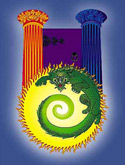
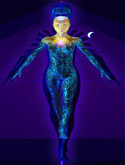

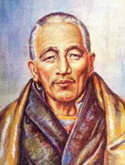
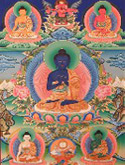
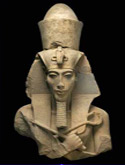


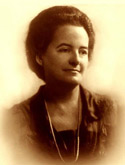



It is of so much relevance the Jewish theme!!! that these considerations brings light understanding and a lot to meditate. Lets have hope… and work unite.